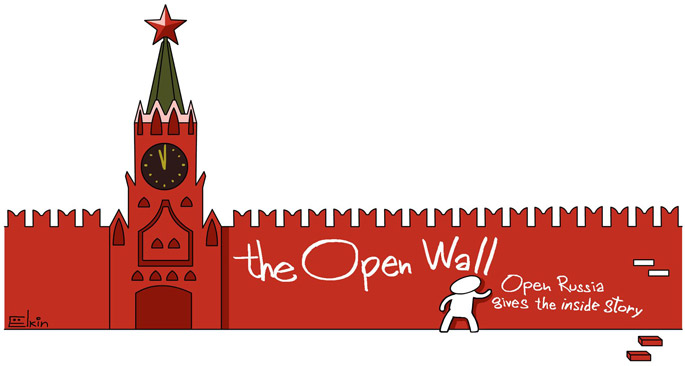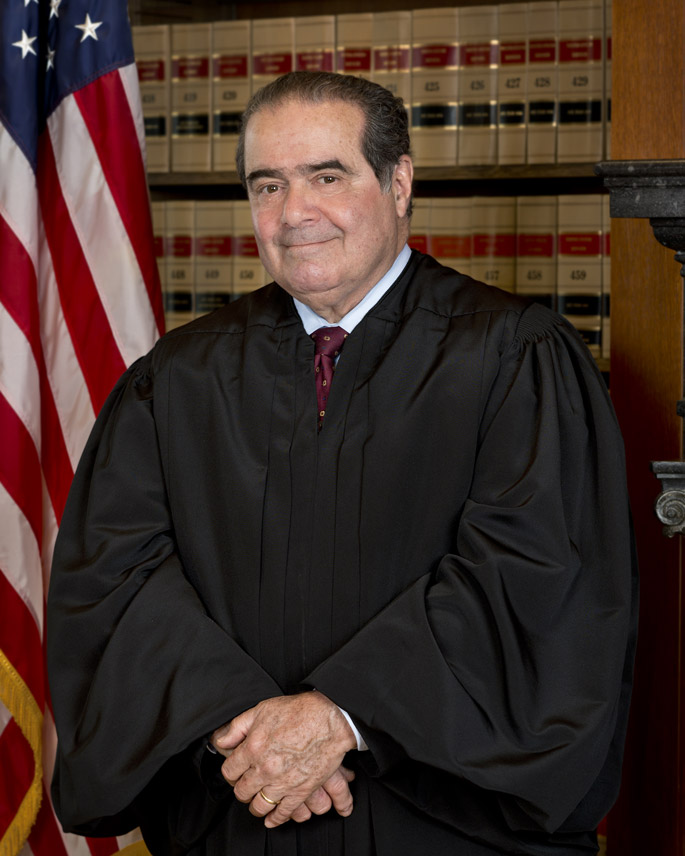Judge not, that ye be not judged

Judge not, that ye be not judged
The death of Antonin Scalia, Justice of the US Supreme Court, whose funeral took place on Saturday, is a “big thing,” as one can see from reading every blog, journal and newspaper, from New York to LA. But if you are a Russian, you might well be thinking, “What is all the fuss about?”

And this means the new justice is going to hold the balance of power – the power to make legal decisions that will shape the politics – which helps explain why the Republicans and the Democrats are making this appointment a key battleground in the presidential election.
If you are a Russian, you might well be thinking, “What is all the fuss about?” If a judge of the Russian Supreme Court were to drop dead suddenly, the ship of state would sail on by. But if we want to see the rule of law in Russia (rather than the rule of one man’s whim) we are going to have to think about the law in a different way; and we don’t simply mean stopping at traffic lights for pedestrians.
Since the US Supreme Court also exercises constitutional control, the scope of its jurisdiction is comparable to that of Russia’s Supreme and Constitutional Courts put together. That said, these institutions have been strongly discredited in Russia. Thus, Constitutional Court Chairman Valery Zorkin is now known not only for zealously protecting national sovereignty from the norms of international law, he has also defended serfdom in the country’s main government newspaper, describing it as the “staple that ensured the internal unity of the nation.”
In recent years, any judges with their own opinions have been forced out of the Constitutional Court. Tamara Morshchakova, one of the country’s most respected jurists, had herself been a Constitutional Court judge for eleven years. Today, she asserts that “the Russian judicial system is broken,” while judges have lost their independence: “How could the Constitutional Court be independent if it’s headed by a lifetime chairman that the president can appoint as many times in a row as he likes, albeit for six years each time? And what happens to the independent position of a judge – I’m not talking some local court judge here, I’m talking Supreme Court judges – when they’ve expressed one dissenting opinion too many? What happens? They end up being forced to step down, that’s what. So that’s the way things are.”
Which is what happened to Constitutional Court judges Anatoly Kononov and Vladimir Yaroslavtsev. These judges very frequently disagreed with their colleagues (with Kononov, for example, expressing over fifty dissenting opinions). Furthermore, the recalcitrant judges were not afraid to share their trenchant assessments with the media. What happened next was only to be expected – they were ousted from the Constitutional Court shortly after Judge Yaroslavtsev publicly dubbed the existing judicial system “the ruins of justice,” and Judge Kononov described the new procedure for appointing the chairman of the Constitutional Court as “undemocratic and disrespectful.”
The judicial system suffers from plenty of problems at the grass-roots level as well. For example, acquittal rates in Russian trials have remained at below 1% for many years. The answer to this crisis may lie in jury trials (last year, juries acquitted some 17% of defendants). In modern Russia, however, juries sit on only a meagre number of cases – last year, only 490 defendants were tried by jury. By way of comparison, some 165,000 cases a year in the US are jury trials.
And while jury trials were already being discussed in the 1991 Conception of Judicial Reform, the question of their wider use still remains controversial in Russia a quarter-century later.
President Putin is aware of the problem. At a conference of court chairpersons on February 16, he said: “The primary objective is to provide an opportunity for the largest possible number of citizens to choose this form of justice [i.e., trial by jury]. However, last year alone, the number of cases resolved by jury trial fell by half – yet more evidence of the ineffectiveness of this institution in its present state.”
But no one has done more to transform trial by jury into an “ineffective institution” than the Russian regime itself: from 2008 onwards, the scope of jury trials has been steadily reduced; and whereas juries were initially able to consider cases involving 47 types of crime, that number has now fallen to 23.
Sergei Pashin, a professor at the National Research University Higher School of Economics (and an ousted federal judge), believes that the reduction of the jury’s role in the judicial process is advantageous not only to the security agencies but also to professional judges themselves: “A jury trial is adversarial justice in action – the presumption of innocence is more than just an empty phrase here. Juries won’t tolerate cases that don’t hold water.”
Political interference in the law, and corruption, means that no Russian citizen can be certain of receiving impartial justice. Judges are mere cogs in the machine; and the higher up the career ladder they climb, the more subordinate to the regime they become. Of course, if they devote their careers to honest and objective examinations of petty theft, they will be left alone. But the moment they get involved in a case whose outcome impinges on the interests of the regime or the security agencies, they are faced with a difficult choice – resign or bend the knee.
Justice Scalia was known for his trenchant opinions, so let us finish with his leading question that is relevant for us all: “Why can’t the state accede to the public’s wishes?”



